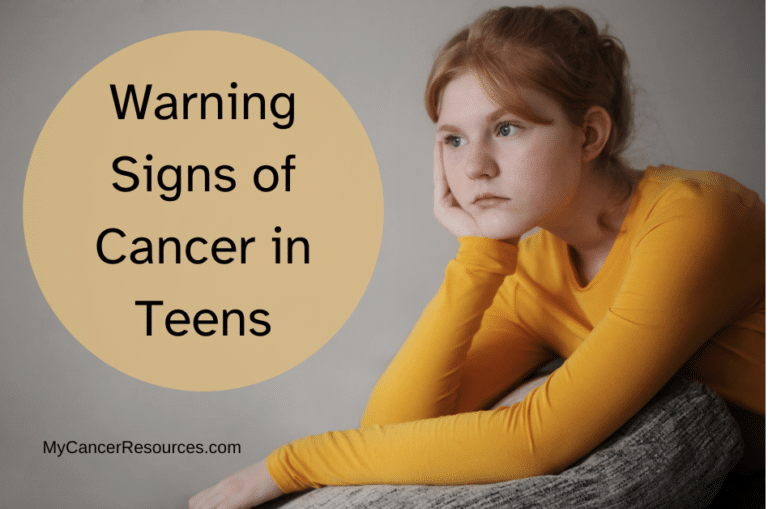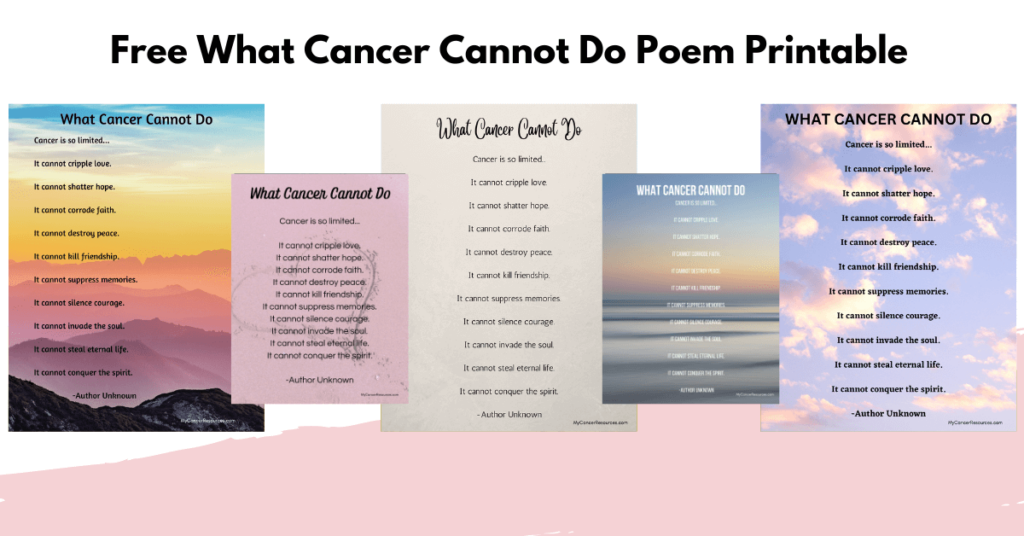
Even though a cancer diagnosis in young people is less common than in older adults, according to the National Cancer Institute, cancer rates are rising in adolescents and young adults aged 15 to 39. Knowing the warning signs can help decide when to reach out to your child’s pediatrician to order diagnostic tests. Survival rates are better when cancer is found early, so it’s important to know the signs of cancer in teens to watch out for. You can then educate your adolescent so they can also be aware of what common signs of cancer can look like.
Understanding Cancer in Teens
Overview of Cancer in Adolescents
Before we delve into the signs and symptoms of cancer in teens, let’s take a minute to understand the basics. Cancer is the uncontrolled growth of abnormal cells in the body. While it’s often associated with older adults, cancer can develop in people of all ages, including teenagers.
Adolescents are at a unique stage of life, and their bodies are still developing. This means that the types of cancer they may experience and the way cancer behaves in their bodies can be different from what we typically associate with cancer in adults. The treatments they receive may also be different than adults with the same type of cancer. However, the good news is that many cancers in teens are highly treatable when detected early.
Most Common Types of Cancer in Teens
There are all sorts of cancers that can develop in teens, but some types are more prevalent among this age group than others. Here are some of the common types of cancer that teenagers may develop:
Leukemia: Leukemia is a cancer of the blood and bone marrow. Leukemia is the most common childhood cancer. The most common leukemias in teens are acute lymphocytic leukemia (ALL) and acute myeloid leukemia (AML).
Lymphoma: Lymphoma is cancer that starts in immune system cells called lymphocytes. These cells are in the lymph nodes or other lymph tissues, like the tonsils. Hodgkin lymphoma is more common in adolescents and young adults than non-Hodgkin lymphoma.
Brain and Spinal Cord Tumors: Teens can develop tumors in the brain stem, and upper and lower parts of the brain. Spinal cord tumors are less common in adolescents but can occur.
Bone Cancer: Two types of bone cancer common in teens: Osteosarcoma starts in the ends of the long bones of the legs and arms. Ewing sarcoma often starts in the chest wall, like the ribs, in the hip bones, or in the middle of the leg bones.
Thyroid Cancer: The thyroid, a butterfly-shaped gland in the neck, produces important hormones for the body. It is more common in young women than in young men.
Germ Cell Tumors, including Testicular Cancer and Ovarian Cancer: These are called gonadal germ cell tumors, as they affect the reproductive organs of young men and women.
Melanoma: Melanoma is cancer of skin cells called melanocytes that produce the skin’s pigment. Melanoma can show up anywhere on the body and may or may not be located where a mole is found.
General Signs and Symptoms
Understanding the general signs and symptoms that can potentially indicate cancer in teens is important. Keep in mind that these symptoms can also be caused by other health issues, but it’s crucial not to ignore them. If your teen experiences any of the following symptoms, contact your doctor for an evaluation.
Unexplained Weight Loss: If your teen is losing weight rapidly without trying, it could be a cause for concern. Significant, unexplained weight loss can be a symptom of various health problems, including cancer.
Fatigue and Weakness: While it’s common for teenagers to feel tired due to their busy lives, persistent and unexplained fatigue or weakness may be a sign that something more serious is happening.
Persistent Pain: If your teen complains of pain that doesn’t improve with rest or over-the-counter pain relievers, it’s essential to investigate further. Pain can be a symptom of cancer, especially when it’s localized and unexplained.
Changes in Skin: Keep an eye on any changes in your teen’s skin, such as new moles or unusual skin rashes. While not all skin changes are cancerous, it’s crucial to have them checked by a healthcare provider.
Frequent Infections: Teens typically get occasional colds and infections, but if your teen seems to be getting sick more often or has prolonged illnesses, it might be worth exploring further.
Changes in Vision or Eye Appearance: If your teen complains of vision problems or if you notice changes in the appearance of their eyes, such as persistent redness, bulging, or changes in pupil size, arrange for a routine eye test to see if anything needs to be checked out further.
Changes in Bowel or Bladder Habits: Any significant and unexplained changes in your teen’s bowel movements or urinary habits should not be ignored. These changes could include blood in the stool or urine, persistent constipation or diarrhea, or difficulty urinating.
Again, if your teen is showing any of these symptoms, it doesn’t mean that they have cancer. But it is important to recognize these general signs to help identify potential issues and to seek out medical attention.
Signs Specific to Certain Cancers
Now that we’ve covered general signs and symptoms, let’s dive into specific cancer symptoms in teens.
Leukemia
Signs of leukemia to watch for include:
Easy Bruising and Bleeding: If your teen bruises easily or has unexplained nosebleeds, bleeding gums, or prolonged bleeding from minor cuts or injuries, it could be a sign of leukemia.
Frequent Infections: Leukemia can weaken the immune system, making your teen more susceptible to infections. If they have a high frequency of infections or infections that take longer than usual to clear up, consult a doctor
Pale Skin: Anemia, which can result from leukemia, may cause your teen’s skin to appear unusually pale. Pay attention to any changes in their complexion.
Lymphoma
Lymphoma warning signs include:
Swollen Lymph Nodes: Enlarged, painless lymph nodes in the armpits, neck, or groin can be a sign of lymphoma. If you notice any swelling that doesn’t go away after a week or two, consult a doctor.
Unexplained Fever: Persistent, unexplained fevers, especially those associated with night sweats, should raise concerns and prompt a medical evaluation.
Brain Tumors
Brain tumors can lead to various neurological symptoms. Keep an eye out for these warning signs:
Frequent Headaches: While headaches are common among teens, frequent and severe headaches, especially those accompanied by nausea and vomiting, need attention.
Nausea and Vomiting: If your teen experiences nausea and vomiting, especially in the morning or after sudden changes in position, it could be a sign of a brain tumor.
Changes in Balance or Coordination: If your teen suddenly has difficulty with balance, coordination, or walking, it’s important to seek medical evaluation. Your child’s doctor may request an MRI or CT scan to rule out a brain tumor.
Changes in Vision, Hearing, or Speech: Tumors can press on the parts of the brain that control vision, hearing, and speech. If these changes are sudden, it could be a sign of a tumor.
Seizures: Seizures should always be evaluated, since they can indicate a tumor or another condition that needs to be treated, like epilepsy.
Bone Cancer
Bone cancer signs include:
Bone Pain and Tenderness: Persistent pain or tenderness in the bones, especially if it worsens at night or during physical activity, should be investigated further.
Swelling Near Tender or Painful Bones: If you notice swelling or a lump near the site of bone pain, take your teen in to get checked out.
Thyroid Cancer
Thyroid cancer has these specific signs:
Neck Swelling or Lump: If your teen develops a lump or swelling in the neck, particularly in the area of the thyroid gland, it should be evaluated.
Difficulty Swallowing: If your teen experiences persistent difficulty swallowing or discomfort when swallowing, it’s important to seek medical attention.
Testicular Cancer
These are the warning signs for testicular cancer:
Lumps or Swelling: Lumps or swelling that does not go away after a few days should be evaluated.
Changes in the Scrotum: A feeling of heaviness or swelling in the scrotum is an indication that medical evaluation is necessary.
Dull Ache in Groin or Lower Belly: An ache that does not go away should be reviewed.
Ovarian Cancer
Signs of ovarian cancer in adolescents can be subtle and can often be confused with menstrual symptoms. Ongoing issues to pay close attention to include:
Quickly Feeling Full: Being unable to eat much because of feeling full very quickly can be a sign of ovarian cancer in teens.
Back or Pelvic Pain: Pain that doesn’t go away and isn’t connected to an injury should be checked out.
Feeling Bloated: Bloating that is not related to a period can be another warning sign.
Swelling in the Abdomen: Teen girls that have unexplained swelling in the abdomen (it may be hard or soft) should be evaluated.
Melanoma
The following are signs that your teen should be evaluated for melanoma:
Changes in Existing Moles: If a mole changes in size, shape, color, texture, if one side looks different than the other, or begins bleeding, this could be a sign of melanoma.
Development of New Spots on Skin: Another warning sign is when a new spot shows up on the skin that doesn’t appear to be a mole, or grows or changes rapidly.
Understanding these specific signs associated with different types of cancer can help you make informed decisions and take action to have your teen evaluated.
The Importance of Open Communication
Now that we’ve discussed the signs and symptoms to watch for, it’s equally important to emphasize the significance of open and honest communication with your teenager. Teens aren’t known for being open books about what’s going on in their lives. However, encouraging your teen to talk about their health concerns and actively listening to them can be instrumental in early detection and support. Here’s how you can foster effective communication:
Encourage Teens to Talk About Their Health
Create a Safe Space: Ensure that your teen feels comfortable discussing any health concerns with you. Make it clear that you are there to support and listen without judgment.
Ask Open-Ended Questions: Instead of asking yes-or-no questions, encourage your teen to share more by asking open-ended questions like, “How have you been feeling lately?” or “Can you describe what you’re experiencing?”
Active Listening: When your teen does open up, be an active listener. Give them your full attention, and validate their feelings and experiences. Avoid interrupting or immediately offering solutions.
Listen to Your Child's Concerns
Take Their Concerns Seriously: Even if a symptom seems minor, take your teen’s concerns seriously. Your validation can reassure them and encourage further communication.
Keep Records: If your teen experiences symptoms, keep a record of when they started, their frequency, and any other relevant details. This information can be valuable when discussing concerns with healthcare professionals.
Offer Emotional Support: Dealing with health issues can be emotionally challenging for teenagers. Be a source of support, and let your teen know that you are there for them throughout the process.
Seek Medical Advice
Trust Your Instincts: As a parent or guardian, you know your child best. If your instincts tell you that something is not right, don’t hesitate to seek medical advice.
Consult Healthcare Professionals: If your teen exhibits any persistent or worrisome symptoms, consult a healthcare professional right away. This can lead to catching the cancer early, which increases the treatment options and can increase the chances of survival for your adolescent.
Second Opinions: In some cases, you may want to seek a second opinion if you have concerns about the initial diagnosis or recommended treatment plan. Trust your judgment and explore all options available to your family.
Effective communication between you and your teenager can not only help in early cancer detection but also strengthen your relationship.
Final Thoughts
The idea of your teen or young adult having cancer can be terrifying. Knowing the general signs of cancer in teens, along with additional warning signs for the most common types of cancer in teens, can help you know when to take symptoms seriously.
You are your teen’s advocate when it comes to their health. Partner with them to be on the lookout for warning signs. Trust your instincts, and don’t be afraid to ask questions or get second opinions if you have concerns. Early detection and timely cancer treatment can make a big difference in the outcome for your teen.



